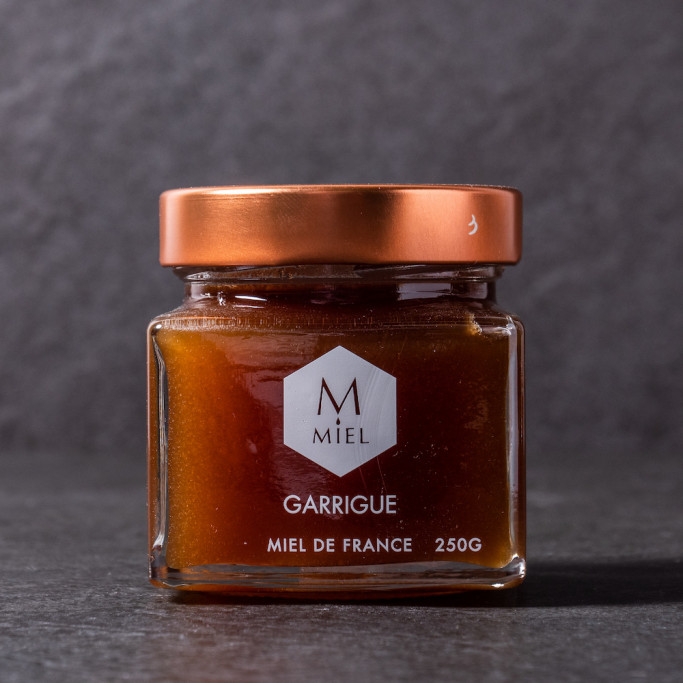

 0
0
 0
0
La Manufacture du Miel's Garrigue flower honey is smooth, robust and distinguished, with a long finish. It offers Provencal notes of thyme, lavender, rosemary, savory, sage, heather, rockrose and holm oak.
Garrigue honey has a golden amber color, more or less brown depending on the evolution of its crystallization. A distinguished, transparent jar.
Rich in trace elements, Garrigue honey has antiseptic, diuretic, toning and fortifying properties.
A committed honey, the fruit of the support and development work of the OFA (Office français d'Apidologie) beekeeping sector, to which we donate 100% of sales proceeds (see our commitments). It comes from the foothills of the Sainte Baume massif and the many beehives in the Bouches-du-Rhône region supported by the OFA: the largest herd of beehives in France.
250 g / 400 g
Recommendations for use: spoon, infuse, spread on toast or add the perfect fragrance to your culinary preparations and beverages.

Nombreuses ont été les alertes. En 2018 la planète compte 7,5 milliards d’individus, et 1,5 milliards souffrent déjà de carence alimentaire. Que ferons-nous lorsque nous serons 9 milliards en 2050 ? 2050 c’est déjà demain. Par leur rôle de principal insecte pollinisateur, les abeilles sont responsables d’1/3 de la production de notre alimentation. Mais partout, leurs colonies s’effondrent... Les abeilles sont en train de disparaître. Tout l’écosystème est lié, il ne s’agit pas seulement d’abeille, il s’agit de l’avenir de la planète et de l’humanité.
